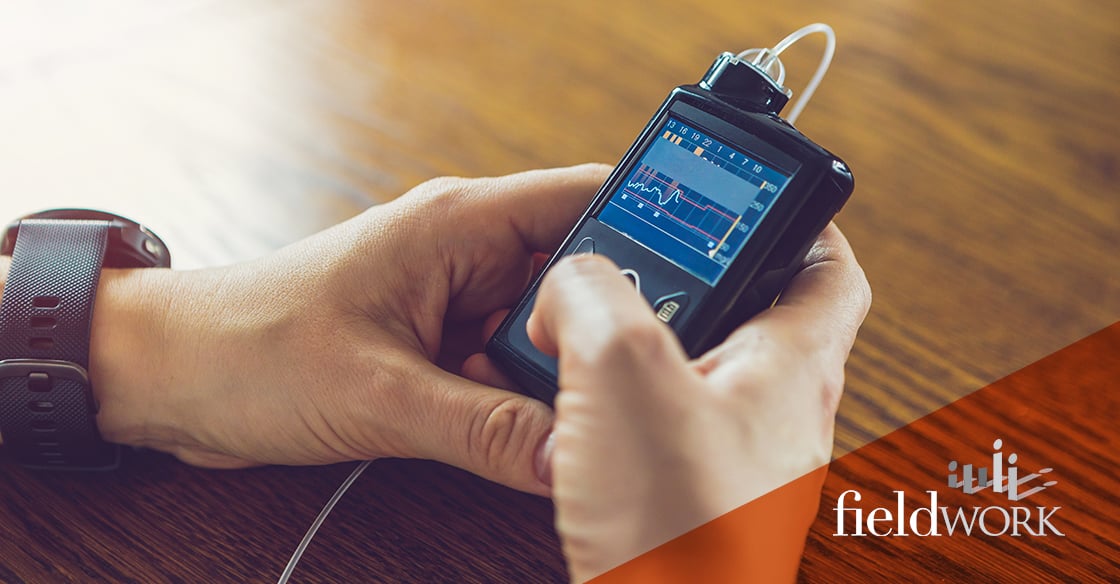Data and insights from the right respondents are the cornerstones of valuable medical device research. And getting those sometimes hard-to-reach people in the right place at the right time is the job of a quality partner who understands the specific challenges and needs of medical device research. With stringent requirements for testing, tight timeframes and collaboration from multiple stakeholders, brands simply can’t waste time, money and other R&D resources on poor-quality respondents or chance not sourcing enough respondents to complete the project.
Whether your medical device testing program includes focus groups or a series of in-depth interviews (IDIs), the quality of the actual opinions shared is fundamental. Medical device researchers need confidence they are getting quality feedback from the people who actually use the device. In order to gain that confidence, they need a recruiting partner they can trust. When thinking about outsourcing the respondent recruiting for your medical device testing, here are five questions you should ask.
1. Do you own your own database with medical contacts and properties?
Recruiting for medical device testing is not the same as recruiting for consumer product studies. Recruiting for any project can be immediately more productive if the database is owned in-house and has been built over many years with multiple medical fields, such as conditions, product usage and the like. Beginning a search from a broad database with narrow specifications can significantly reduce the time needed to get qualified people on a shortlist.
Another consideration of database ownership could be about the ability to recruit physicians, bioscience practitioners, therapeutics experts or specialists. If these high-touch recruits are needed relationships need to already be formed. These professionals have busy schedules and layers of gatekeepers so if your study will call for medical professionals to be included in any iteration, knowing how your partner intends to recruit to fill the sample size need is important.
2. Do you have local and national recruiting?
A boots-on-the ground approach to recruiting can be difficult. But when these efforts are handled year-round and are a part of an on-going building of an extensive database, medical recruiting specialists can more easily build significant relationships within communities to help source even low incidence recruits.
National recruiting teams can help fill the localized work bringing the right balance to the respondent pool. Getting the right candidates is key, but making sure those candidates represent the group your device is looking to serve is equally important. Having a blend of respondents from different parts of the country, different socio-economic levels, representative ethnic and race groups, adequate variations of age groups and education levels is the difference between getting opinions from some of the intended audience or getting opinions from a truly representative audience. Understanding how the right blend of localized and national recruiting can contribute to a stronger overall picture is critical when evaluating a potential recruiting partner.
3. How often will I receive updates on recruiting progress?
In an ideal world, you would be handling one study at a time and bring it to its successful completion before starting something new. In the world of market research, that is simply not a reality. Because you are juggling multiple projects with varying timelines and levels of complexity, getting the right volume of updates on your recruiting project is essential.
Beyond setting the right time frame for updates, proactive project management should keep you informed of problems before they become problematic. Communication protocols, such as establishing one point of contact, should be discussed before the study goes into the field.
4. How do you handle confidentiality and security issues?
Expert medical research recruiting requires a comprehensive familiarity with data security as it pertains to personal information. The market research industry also adheres to its own code of ethics. Certain studies may also require additional security or confidentiality measures or even extensive non-disclosures. Beyond recruiting, ensuring a good show rate and properly handling incentives, a great partner will handle all of the required disclosures and paperwork necessary.
5. Can you maintain medical device testing standards at your facility?
It's important to follow device testing standards while still making respondents feel comfortable no matter the environment. But when the study calls for hosting a focus group, it is important to know how the environment will comply with the study standards.
Other issues such as handling proper decay times for physical product trials or instruction testing require very clear communication. All pieces of the study must be completed within guidelines or that data must be discarded. Recruiting partners should be able to provide a comprehensive understanding of the study's requirements and these issues should be put in writing and reviewed by both the project manager and those who will handle check-in and on-site management during the study.
Recruiting for medical device testing should never be an afterthought as it requires expertise and extensive planning. Finding a partner with the same commitment and attention to detail you bring to your work is crucial for streamlining medical device testing success. Whether your medical device testing program includes focus groups or a series of in-depth interviews (IDIs), hosting respondents in your facility or elsewhere, getting the answers you need will bring confidence in each next step and ensure total project success.
The medical industry continues to grow and change every day, and recruiting qualified health care professionals, patients and caregivers can make or break your medical research study. Click below to download our free guide that breaks down expert medical research recruiting.


.jpg?width=400&name=20200722-fw-pillar-page-medical-recruiting-sidebar-r1%20(1).jpg)


